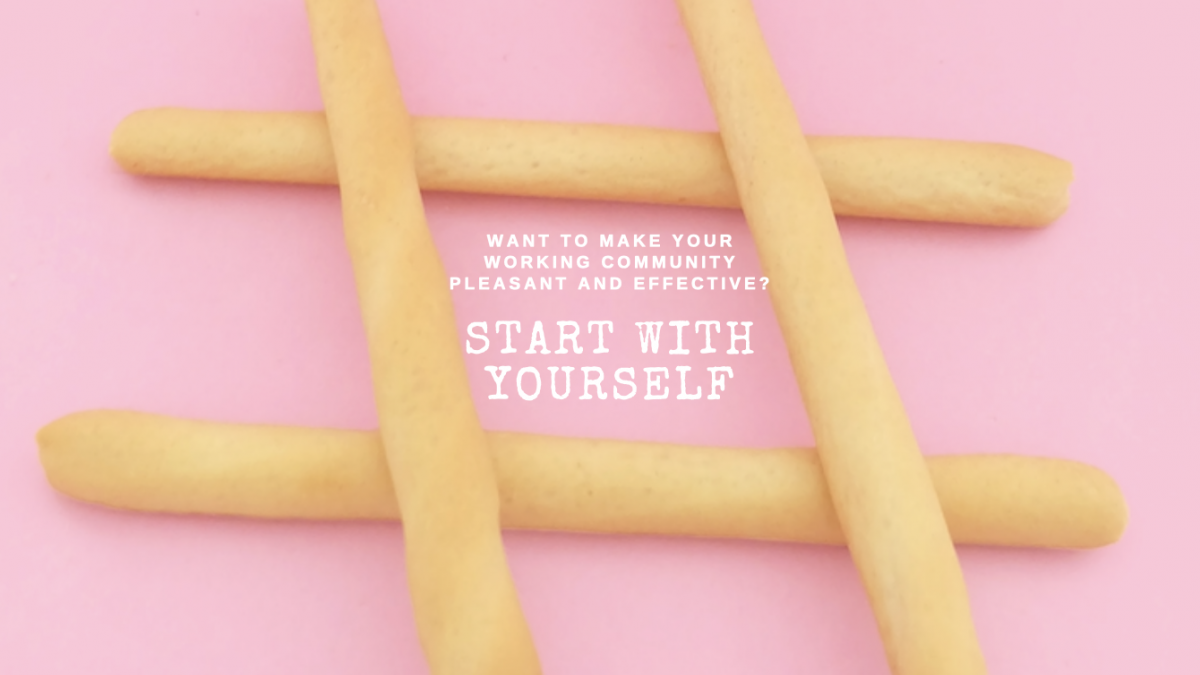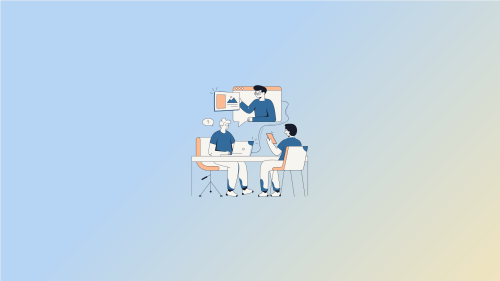Want to make your working community pleasant and effective? Start with yourself
19.11.2019

This post is a continuation for my colleague Jari’s post: Tech skills become obsolete with time, people skills won’t.
As Jari pointed out in the previous post, to succeed as a consultant, apart from good technical skills, you also have to have excellent behavioral skills. After all, problems in companies often stem from communication problems and people, not from the lack of technical skills. In this post I’ll try to dig a little deeper into the subject by providing real life examples of how you can succeed better in your work by improving your behavioral skills.
Know yourself
Find and acknowledge your own problems. For example, meetings might feel like a waste of time. But the problem might not always be the meeting, it might be you. Know how your mind works, do you need to prepare extensively before the meeting? Or do you prefer to be a more passive listener during meetings and let your brain work the ideas slowly afterwards? Not all minds can come up with ideas in short “brainstorming” sessions. If you can’t contribute to the meeting at the very moment, you can follow up later via email once your mind has worked through it.
Try to identify other faults in yourself too, so you have something to work on. Is my voice loud enough? Are my presentations clear enough? Do I articulate myself clearly? You can ask your colleague to help you to identify the places where you need to improve. However, don’t underestimate your strengths and be sure to embrace them.

Take ownership and responsibility
Can you take true ownership and responsibility of the features you are developing? Or do you second guess yourself often and confirm every small detail with someone else? Consultants should get stuff done and it isn’t possible without taking true ownership of the features you’re developing and bearing the responsibility for their implementation. Start by making small decisions about the feature you’re working on by yourself. Study and trust your expertise. Don’t be afraid of making mistakes, either. As you gain experience in decision making it gets easier to take more responsibility.
Read the situation
As a consultant, you’ll end up working with many different kinds of teams and situations. When is it appropriate to chat and tell jokes and when should you just focus on the work and not interrupt others? Knowing how to act in each situation is not always easy, and things can vary between companies and teams. Discuss and learn the rules within your team and learn to read the situation as necessary. Often times before acting it makes sense to step back and consider the situation from another’s point of view. Think before acting.

Time management
Are you a flexible team player who is always on top of their tasks? Or do you feel you’re always extremely busy? Some super productive people seem to always have a moment to have a discussion and give time to others. That’s because they focus on the essential and prioritize tasks correctly. Yet sometimes you might see people who are always super busy but aren’t really any more productive than others. Use your time wisely and learn to identify what is important and focus on that. This also makes you more approachable among your colleagues as you seem to be on top of your tasks and they’re not afraid to interrupt you. Furthermore, you’ll feel more relaxed as you work on what really matters.
Conclusions
Good behavioral skills are in great demand in consultancy jobs. Luckily, just like technical skills, they can be developed. Start by identifying your own weaknesses and work on those. And remember to utilise your strengths too. Developing your behavioral skills should be as high priority as developing your technical skills. After all, your technical skills might become outdated, but behavioral skills remain relevant always.




